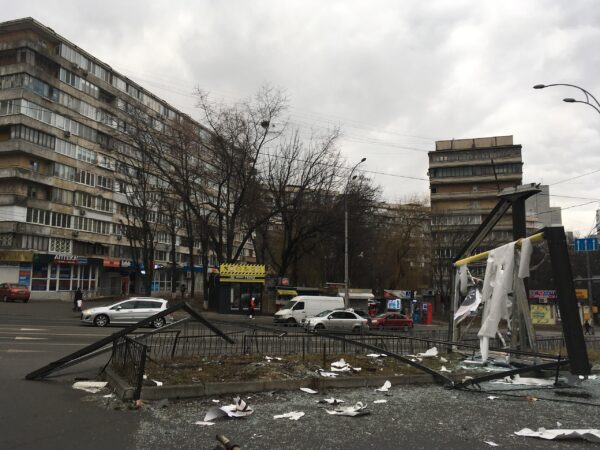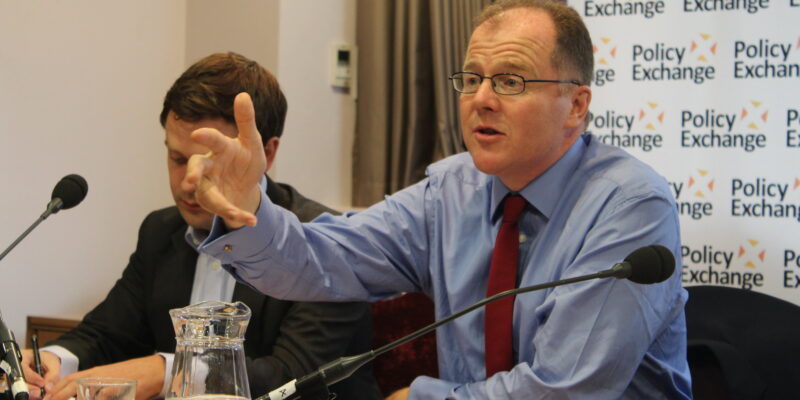UK isolated as EU makes sweeping commitment to Ukrainian refugees
As the government’s authoritarian co-thinkers in Hungary and Poland open the borders to those fleeing from the conflict, the UK’s anti-immigration policy is increasingly going against the grain.

The UK is increasingly isolated in its failure to welcome those fleeing the Russian invasion of Ukraine. Neighbouring countries have opened their borders, allowing hundreds of thousands of Ukrainians sanctuary, while civil society is organising a grassroots logistical support and relief operation.
Strikingly, a number of states that had previously taken a hardline position against any form of refugee resettlement are offering humanitarian protection to Ukrainian refugees. These include the far-right Hungarian and Polish (a very close ally of the UK) governments that have repeatedly clashed with the EU over their rule of law violations.
The UK’s policy on Ukrainian refugees now puts it to the right of Poland.
Cracks in the walls of fortress Europe?
At the EU level, the European Commission have proposed to trigger a ‘Temporary Protection Directive’ for Ukrainian nationals in EU states. Rather than Ukrainians having to go through an asylum process to achieve refugee status, they would simply be granted automatic protection on the grounds of their nationality for a period of three years. This would grant an immediate right to work and access to the education system in all EU states for this period.
The directive has been on the EU statue book since 2001 and was originally motivated by the crisis in Yugoslavia in the 1990s. But the mechanism has never been used before. So, yes, EU states could have used it during the Syrian refugee crisis, but refused to. It shows how politically manufactured the post-2014 crisis was. The crisis could have been resolved (and still can be) through simple mechanisms that facilitate legal routes for those fleeing war.
The two crises sadly illustrates the racially motivated character of much European anti-immigrant sentiment. The new radical right has made explicit what is often left implicit by the European legal order: namely, that predominantly, non-white, Muslim immigration should be treated differently to that of white people. But, of course, there are also other factors, which further complicate this story. Maria Sobolewska, a professor at the University of Manchester, has highlighted, for instance, the long history of entanglement between Ukraine and Poland that underlines Polish sentiments on the current war and generates a visceral feeling of solidarity and responsibility.
The EU has not yet agreed the protection measure, but it is thought to have sufficient support. The hope has to be that this is a turning point towards a human rights based approach. EU states can organise themselves to respond rapidly to large movements of people, despite the protestations that motivate the ‘fortress Europe’ conception.
Britain isolated: drop the Nationality and Borders Bill and protect refugees
There are a few steps that the UK could and should immediately take.
The first is to drop the Nationality and Borders Bill, which is currently in the very last stages of its passage into UK law. Under this legislation Ukrainians that reached the UK via an ‘irregular’ route would be considered criminals and denied the right to seek asylum – and could even be sent to an ‘offshore’ detention facility. This is despite the fact there are no legal routes that Ukrainians or other refugees could use to facilitate their transit to the UK in order to then make an asylum claim.
Second, the UK could follow this up by simply matching the EU commitment to Ukrainians, cutting out the asylum process altogether for those fleeing the Russian invasion and granting temporary protection for a period of three years. If the UK fails to match this minimal EU policy, then it should be treated as an international pariah.
The third basic step would be to introduce an asylum visa for people not currently in the UK. This is a very minimal proposal that would go along way to meet the government’s rhetorical commitment to “end people trafficking”.
So long as their asylum claim is considered to have a reasonable chance of success and they have grounds for applying in the UK for refugee protection, the applicant would receive documentation from an overseas visa office or consulate allowing them to travel to the UK via a legal route. Notably, this would assist all UK-bound asylum seekers, not just Ukrainians, and a similar procedure has been put forward to end the scandal of Channel deaths.
None of these proposals are radical – and they all fall well short of a fully rights-based immigration system. But the refusal of the UK government to even countenance them now puts them firmly on the extreme fringes of the migration and asylum policy debate in Europe.
February 28, 2022
Brexit Spotlight is run by Another Europe Is Possible. You can support this work by joining us today. The website is a resource to encourage debate and discussion. Published opinions do not necessarily represent those of Another Europe.





